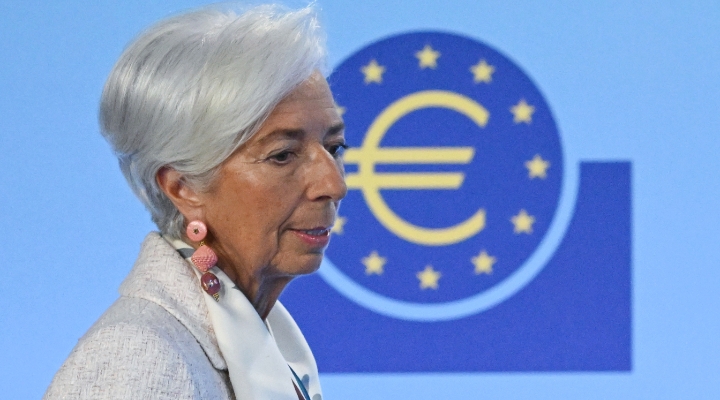
After the ECB kept rates steady last week, markets are now looking to flash inflation figures for the euro area that are due at 11am Central European Time on Thursday, February 1.
Euro area annual inflation rose by 2.9% in December, up from 2.4% in November 2023, according to Eurostat, surprising markets. A year ago, the rate was 9.2%.
The January Harmonized Index of Consumer Prices (HICP) – a measure of inflation in the Eurozone - is expected to show a 2.7% increase on the year before, according to the FactSet consensus estimates.
“After the rise in inflation in December, investors will be relieved to learn that economists now expect inflation to have fallen in January, continuing the decline that all of us celebrated for much of 2023,” said Michael Field, European market strategist at Morningstar.
In December, the highest contribution to the annual euro area inflation rate came from services (+1.74 percentage points, pp), followed by food, alcohol & tobacco (+1.21 pp), non-energy industrial goods (+0.66 pp) and energy (-0.68 pp).
Eurozone Inflation is Falling
“While still some way off the ECB’s 2% target, the direction of travel of inflation is firmly to the downside, the inevitable effect of record high interest rates. Pleasingly, core inflation, the measure the central bank is really focused on, is also expected to fall by 10 basis points, to 3.3%,” said Field.
ECB: Interest Rate Hikes Are Working
In the January post-meeting statement, the ECB said: “Aside from an energy-related upward base effect on headline inflation, the declining trend in underlying inflation has continued, and the past interest rate increases keep being transmitted forcefully into financing conditions. Tight financing conditions are dampening demand, and this is helping to push down inflation.”
Geopolitical tensions are an upward risk for inflation, especially if the tensions in the Red Sea escalate, but these impacts could be limited.
“The risk of escalation is concrete even though, paradoxically, inflation may not experience major upward shocks,” said Giacomo Calef, country head for Italy of NS Partners. “Freight rates have risen significantly, but remain far from the $14,000 observed during the pandemic. Moreover, transportation costs count for only a very small part of the total value of some goods that weigh heavily in the Consumer Price Index (CPI) calculation.”
Eurozone Wages Accelerate
In addition to geopolitical risks, another factor that could turn inflation up is the increase in wages. Despite the stagnation in the Euro area in the fourth quarter, the labour market has remained robust. The unemployment rate, at 6.4% in November, has fallen back to its lowest level since the start of the euro and more workers have entered the labour force. Eurozone wages rose 5.3% in the year to Q3 2023, accelerating from 2.2% a year earlier. According to ECB, the first quarter’s data will be critical to see if there are signs of further increases.
“The ECB remains cautious about the pace of disinflation, and will continue to monitor developments in the labour market, which has proven very resilient. Strong wage growth and weak or even declining productivity have led to a sharp increase in unit labour cost growth. The ECB will closely monitor upcoming wage agreements,” said Valentine Ainouz, Head of Fixed Income Strategy di Amundi Investment Institute.
Will the ECB Cut Rates in June?
European Central Bank President Christine Largarde said that the Eurozone economy most likely stagnated in the fourth quarter (data will be released in the upcoming weeks). She also added that “the incoming data continue to signal weakness in the near term”, but the growth rate would pick up further ahead.
Regarding future decisions, Lagarde said that “our policy rates will be set at sufficiently restrictive levels for as long as necessary”. Markets, however, have perceived an accommodative tone, with the US dollar appreciating against the euro and lower yields pushing up bond prices after the ECB January meeting. A shifting in monetary policy is expected at some point in 2024 and several portfolio managers and economists are betting in a first interest rate cut in June.
“Given the cautiously accommodative tone of the last ECB meeting, the risk of a cut before June is slightly increased. We, however, confirm the estimate of the first rate cut only from June”, said Martin Wolburg, senior economist di Generali Investments.
Morningstar’s Field added: “With the fight against inflation back on track after the blip in December, we believe the ECB’s attention can now start to shift to the European economy, which remains in a fragile state. Although a resurgence in inflation is an outside concern, at this point the central bank has created some breathing room for itself and is in a strong position to cut interest rates in 2024”.




























